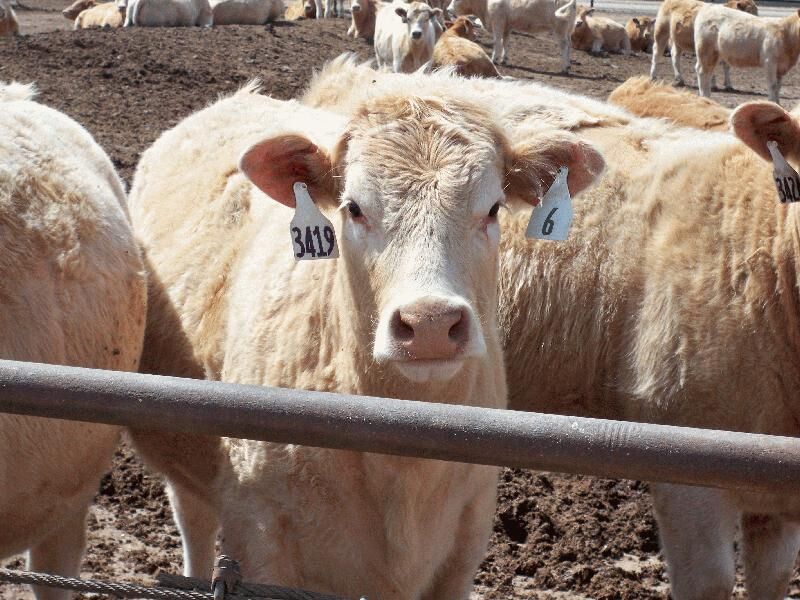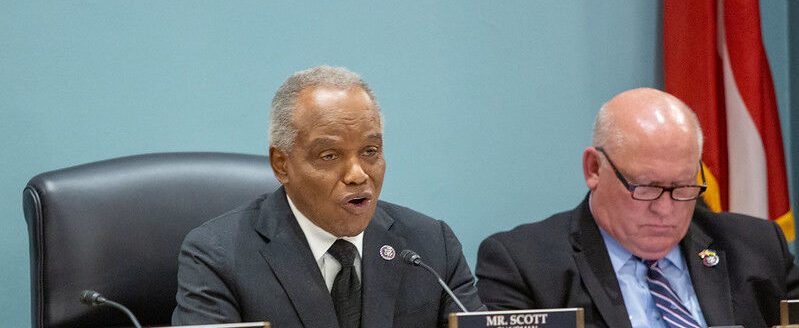Bipartisan legislation that supporters say will improve transparency in the cattle markets was approved by the United States Senate Agriculture Committee on June 22.
Sponsored by U.S. Sens. Deb Fischer, R-NE, Chuck Grassley, R-IA, Jon Tester, D-MT, and Ron Wyden, D-OR, their Cattle Price Discovery and Transparency Act passed by voice vote with only two recorded no votes and is now eligible for a final vote on the Senate floor, according to a news release from supporters. The senators unveiled the updated version of the legislation in March.
“Our bipartisan bill to facilitate price discovery and bring much needed transparency to the cattle market passed the committee by voice vote with only two recorded no votes. The broad support reflects the importance of restoring market fairness so that every segment of the cattle supply chain can succeed. These reforms are especially needed now at a time when family ranchers and consumers are all struggling to navigate a slow economy and record inflation,” Fischer said in the news release.
The updated bill:
1. Requires the Secretary of Agriculture to establish five to seven regions encompassing the entire continental U.S. and then establish minimum levels of fed cattle purchases made through approved pricing mechanisms. Approved pricing mechanisms are fed cattle purchases made through negotiated cash, negotiated grid, at a stockyard, and through trading systems that multiple buyers and sellers regularly can make and accept bids. These pricing mechanisms will ensure robust price discovery.
2. Establishes a maximum penalty for covered packers of $90,000 for mandatory minimum violations. Covered packers are defined as those packers that during the immediately preceding five years have slaughtered 5% or more of the number of fed cattle nationally.
3. Creates a publicly available library of marketing contracts, mandating box beef reporting to ensure transparency, expediting the reporting of cattle carcass weights, and requiring a packer to report the number of cattle scheduled to be delivered for slaughter each day for the next 14 days. The contract library would be permanently authorized and specify key details about the contents that must be included in the library like the duration of the contract and provisions in the contract that may impact price such as schedules, premiums and discounts, and transportation arrangements.
U.S. Sens. Roger Marshall, R-KS, and Tommy Tuberville, R-AL, expressed their opposition to expanding the federal government’s control over U.S. cattle markets by offering an amendment to strike market quotas for fed cattle from the Cattle Price Discovery and Transparency Act of 2022. The amendment was offered during the hearing.
When offering his amendment, Marshall said, in part, “Transparency is the nectar of free enterprise and capitalism without competition creates opportunities for exploitation…I understand the frustrations of the senators who authored and support this bill, but a market mandate is the wrong approach…It could cost cattle producers anywhere from $23 million to $249 million each year and 90% of those costs appear to be borne by cattlemen in Kansas and the southern Plains states…While this is an attempt to regulate the packer, the result is actually additional regulation of the cattle producer. This will give the packer all the leverage to decide who gets the good deal and who gets the bad deal.”
Although Marshall withdrew his amendment, he intends to re-offer it if the Cattle Price Discovery and Transparency Act reaches the Senate floor for the full chamber’s consideration.
Several organizations praised the action.
“Studies have shown that, without government intervention, negotiated trade in the U.S. marketplace will fall to 0% by 2026 in parts of the country. When producers don’t have the ability to negotiate a fair price for their cattle based on current market conditions, it results in a vertically integrated, corporate-controlled beef supply chain. This threatens the livelihoods of producers and the security of our national food system,” said Brooke Miller, president of U.S. Cattlemen’s Association, according to a release provided to supporters.
“For family farmers and ranchers to thrive, they need markets that offer adequate price discovery and transparency. NFU strongly supports the Cattle Price Discovery and Transparency Act of 2022, which will preserve the cash market as an option for cattle producers by establishing regional minimums for cash trades, and through other provisions,” said National Farmers Union President Rob Larew in a statement provided by supporters.
However, the National Cattlemen’s Beef Association voiced opposition to the Cattle Price Transparency Act of 2022 in a statement posted on the organization’s website.
“The U.S. cattle industry is home to one of the most complex set of markets in the world. Rather than embrace the freedom of that marketing system, Congress is instituting a one-size-fits-all policy that will hurt cattle producers’ livelihoods. Cattle markets are finally returning to normal after pandemic-fueled uncertainty, but these heavy-handed mandates will stifle innovation and limit marketing opportunities,” said NCBA Vice President of Government Affairs Ethan Lane. “Cattlemen and women deserve the freedom to market their cattle in whatever way they want.”
The Cattle Price Transparency Act of 2022 would subject every cattle producer in the country to a business-altering government mandate, according to NCBA. The bill would severely restrict the use of Alternative Marketing Arrangements, which provide stability to producers and allow them to invest in creating higher-quality and specialty products that command a premium. NCBA said the bill also fails to consider the unique ways producers raise cattle in different regions of the country. Although the bill was introduced when cattle markets experienced uncertainty because of the COVID-19 pandemic, market conditions have improved on their own without heavy-handed government intervention. This legislation would jeopardize that recovery, the organization concludes..
The NCBA has also opposed the recent Meat and Poultry Special Investigator Act of 2022, which was marked up by the Senate Committee on Agriculture, Nutrition, and Forestry.
The Meat and Poultry Special Investigator Act of 2022 would create a new special investigator position at the U.S. Department of Agriculture to investigate “competition matters,” Lane said. Unfortunately, the legislation is duplicative and only creates additional bureaucracy for investigating anticompetitive behavior,” Lane said. “NCBA supports oversight of the market, but creating a duplicative, bureaucratic new special investigator role is the wrong approach. Congress should be focused on the issues that are hurting producer profitability now—rising food, fuel, and feed prices,” said Lane.
NCBA’s grassroots policy, which is voted on by individual cattle producers, opposes both bills.
“Kansas Farm Bureau strongly endorses the amendment from Sens. Marshall and Tuberville because it would ensure Congress stays out of telling ranchers how to do business in the cattle industry,” said Rich Felts, president of Kansas Farm Bureau As a top-three state in the number of cattle, cattle on feed and cattle slaughter, Kansas producers have worked to develop the quality driven market system we have currently. We welcome debates on improving cattle markets, and removing this mandate allow us to explore real solutions to improve markets for cattle producers.”
Dave Bergmeier can be reached at 620-227-1822 or [email protected].




